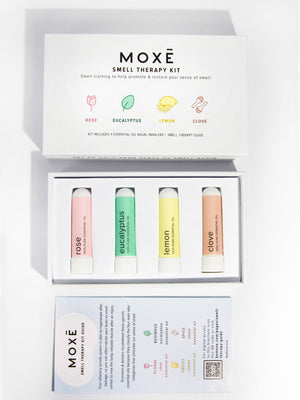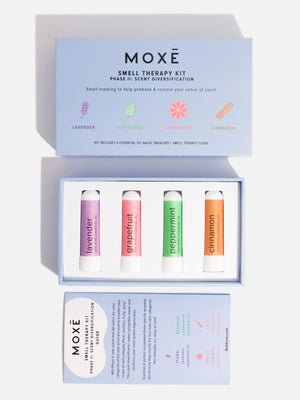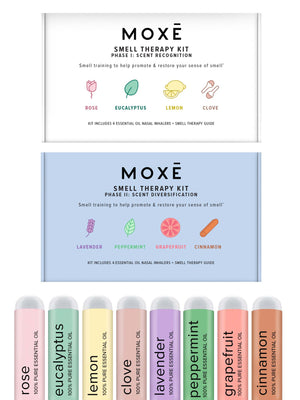Smell Therapy Kit Phase II: Scent Diversification
Smell Therapy Kit Phase II: Scent Diversification
Expand your scent palate and take your olfactory training to the next level with our Smell Therapy Kit Phase II. Designed to introduce a broader, more diverse range of aromas, this kit deepens your sensory engagement and strengthens your ability to recognize, differentiate, and reconnect with scents.
Featuring an expanded selection of essential oils—including notes like orange and frankincense—Phase II helps stimulate a wider array of olfactory receptors, supporting more comprehensive smell recovery and a richer aromatic experience. Whether you’re progressing from Phase I or seeking to enhance your sensory exploration, this kit provides a structured and effective way to continue building your scent recognition skills.
Perfect for smell retraining, sensory wellness, and ongoing olfactory development, all inhalers are compact, travel-friendly, and mess-free for easy daily use.
Couldn't load pickup availability
Benefits
Benefits
Builds on foundational smell therapy
Phase II provides more complex and varied aromas that help strengthen scent differentiation skills beyond the basics.
Broadens scent recognition pathways
Diverse essential oils—such as orange (fruity) and frankincense (resinous)—help the brain recognize a wider spectrum of scent families.
Supports ongoing smell recovery
Expanding fragrance variety can improve neural activation, supporting better smell perception, recall, and recovery.
Enhances sensory engagement
Ideal for individuals ready to advance their olfactory therapy or seeking a deeper, more enriching scent experience.
Why MOXĒ?
Why MOXĒ?
Expand your sensory capabilities with wider, more diverse scent families
Broaden your smell experience beyond the original kit
Strengthen your ability to recognize and differentiate odors
Improve scent identification with consistent, intentional practice
Build stronger smell-memory pathways to support long-term recall and recovery
Ingredients
Ingredients
Research shows that adapting training to incorporate similar aromas helps to cement the odor categories (fruity, floral, resinous and spicy) in your brain and expand the scents you’re able to recognize and differentiate between.
This scent diversification makes recognition easier and reinforces your smell system regeneration.
Where you may have once perceived rose as only vaguely floral, with phase II you’ll not only be able to recognize its scent category but also be able to name it as rose and differentiate it from lavender, another floral oil.
Recommended Use
Recommended Use
Find a quiet, comfortable space where you can fully focus.
Twist open the inhaler of your choice and place it near your nostrils. Gently inhale for 20–30 seconds, concentrating on the aroma and any memories or associations that surface.
Consistency is crucial—perform smell training twice daily with all four inhalers for at least 12–16 weeks to help reinforce neural pathways.
Record your progress and reflections in the Smell Log provided.
Begin Phase II after completing approximately 3 months of diligent training with the Phase I Smell Therapy Kit.
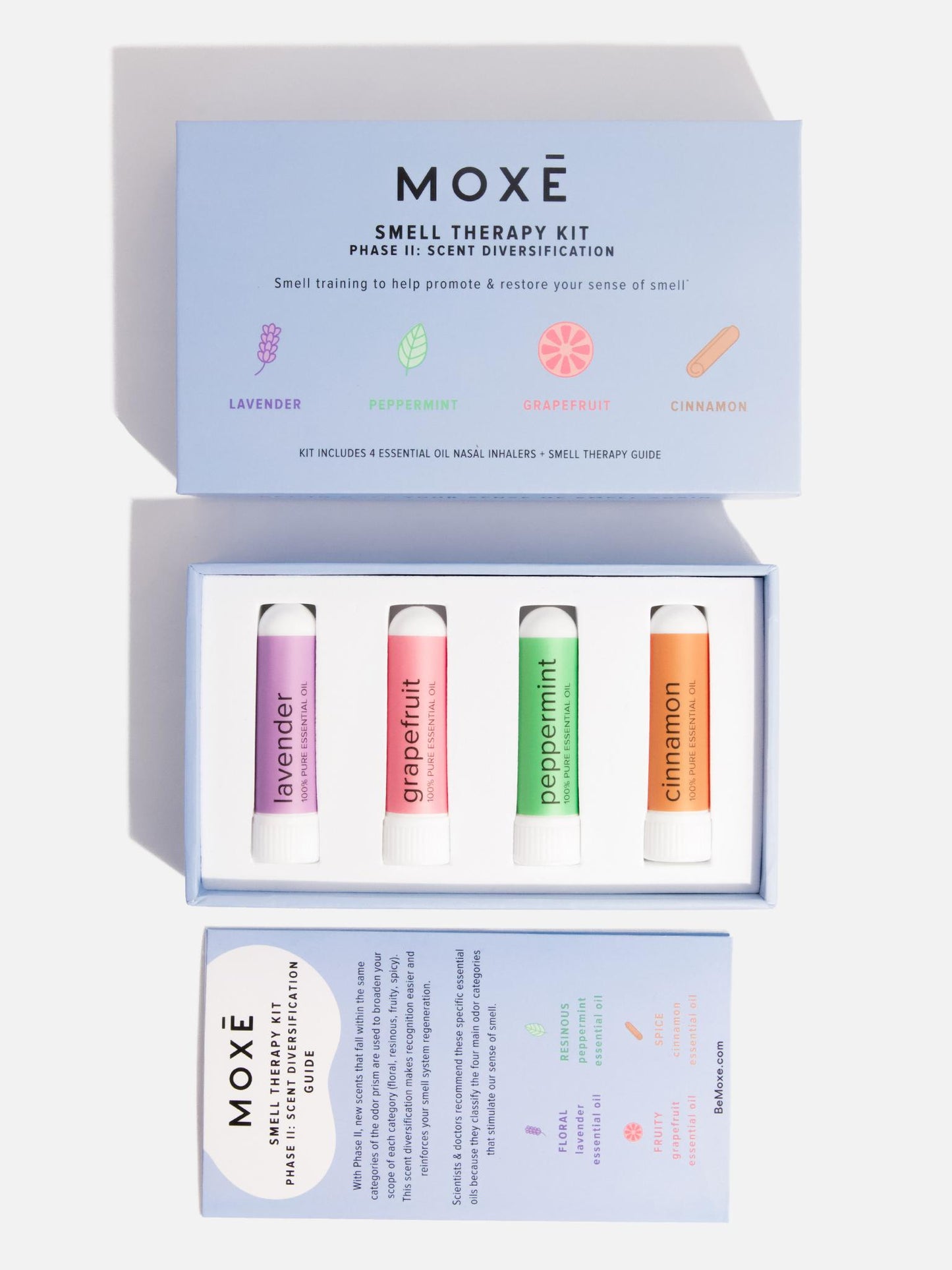
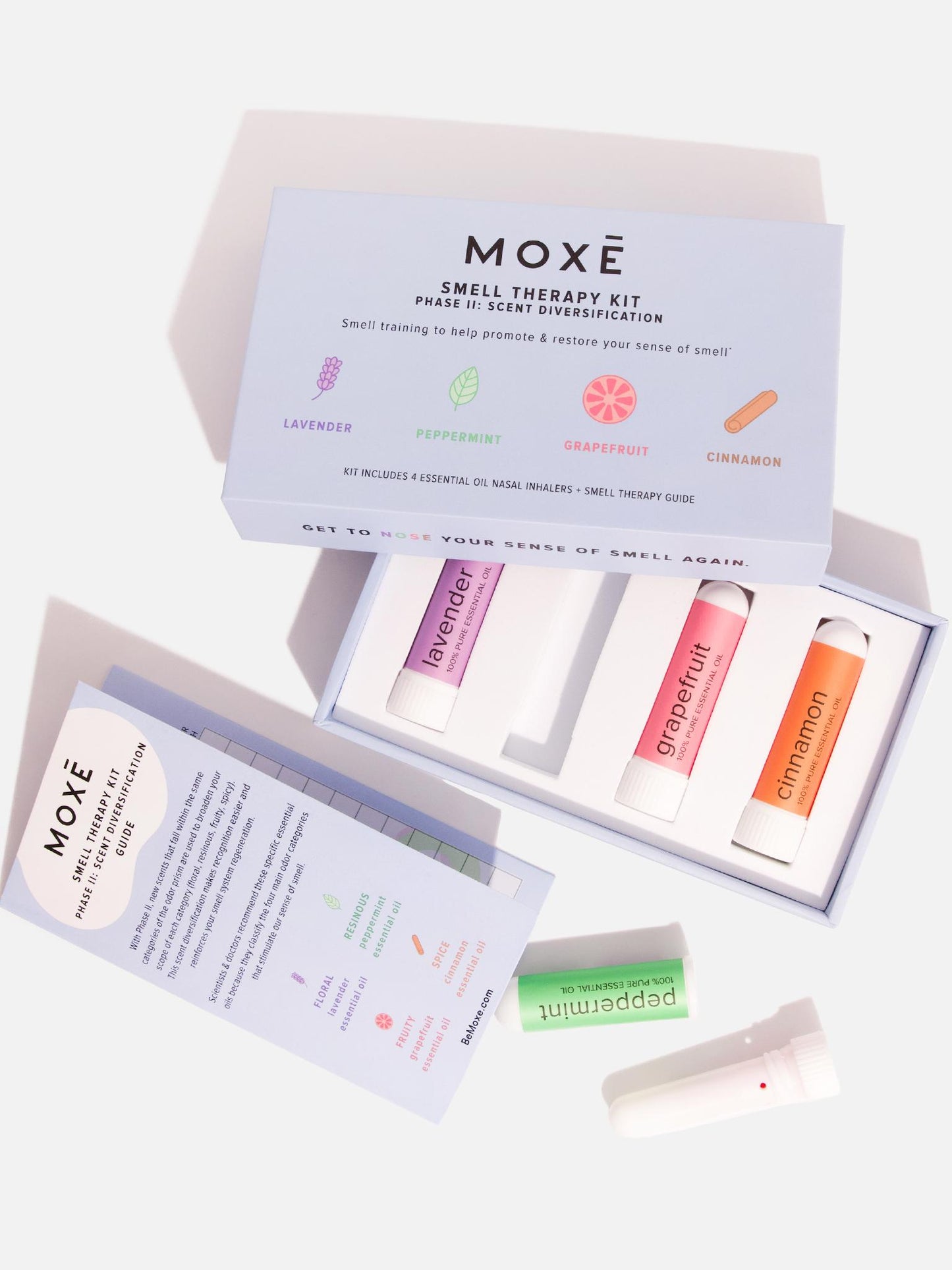
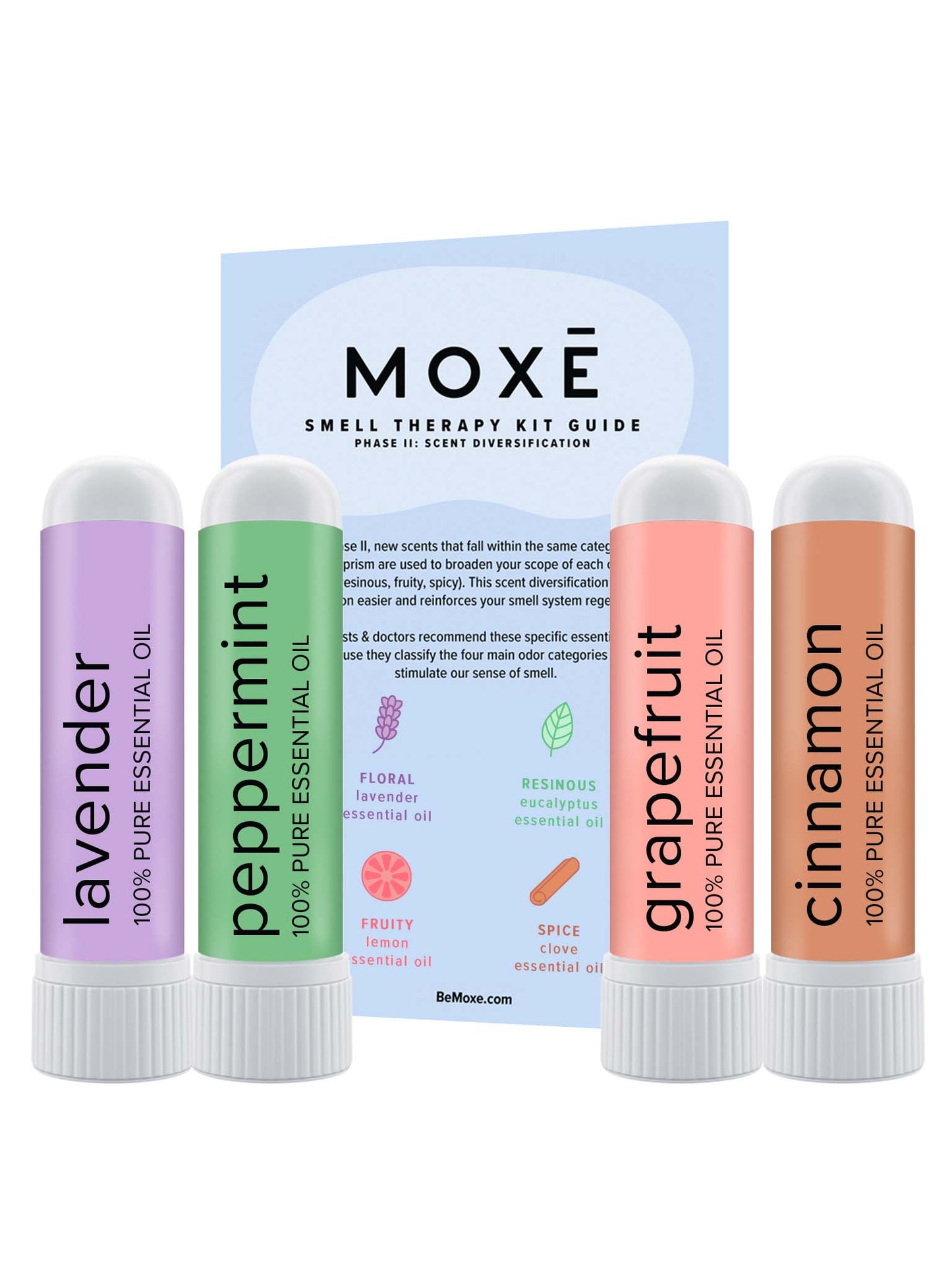
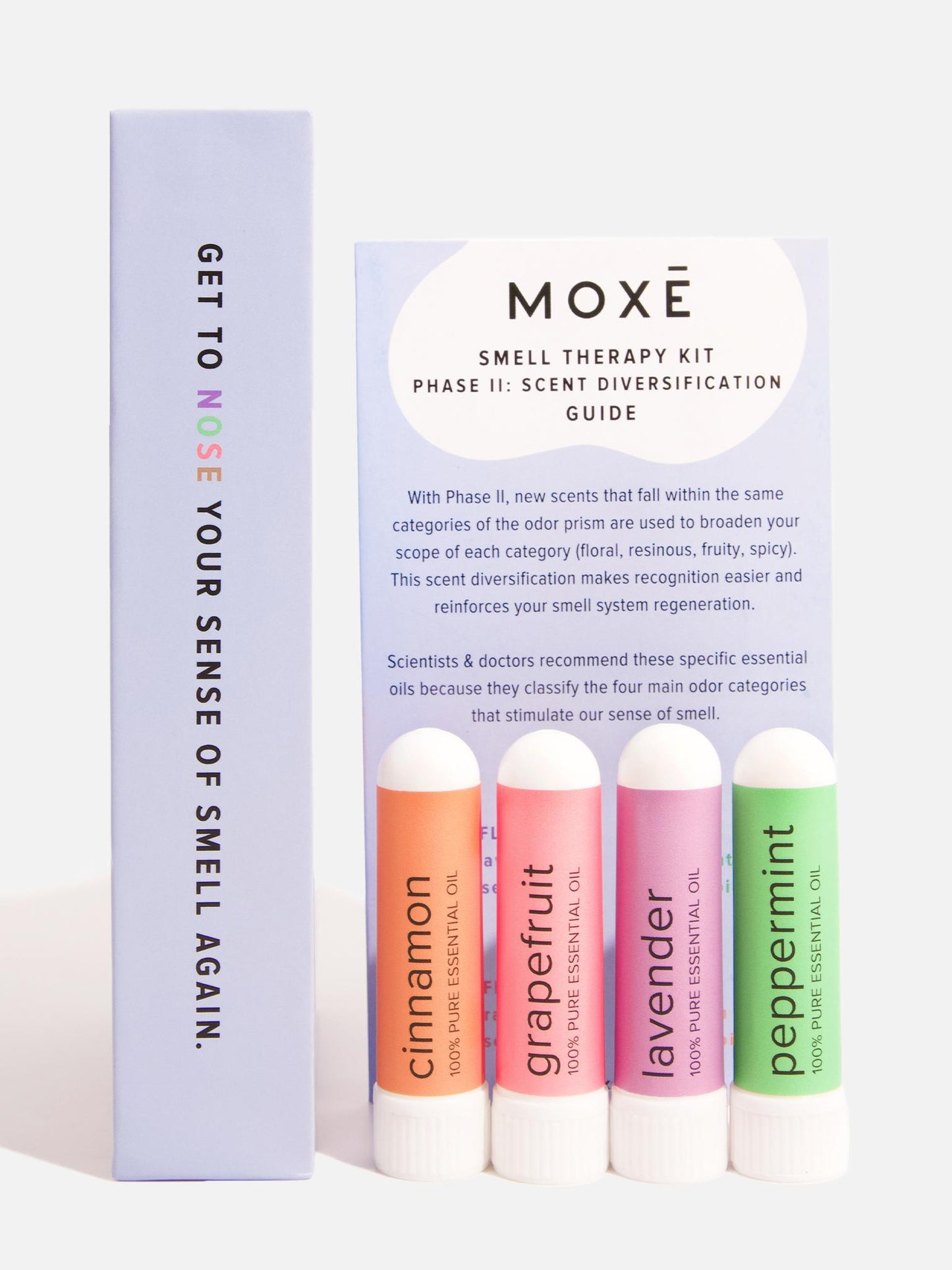
The four main odor categories that make up our sense of smell
-
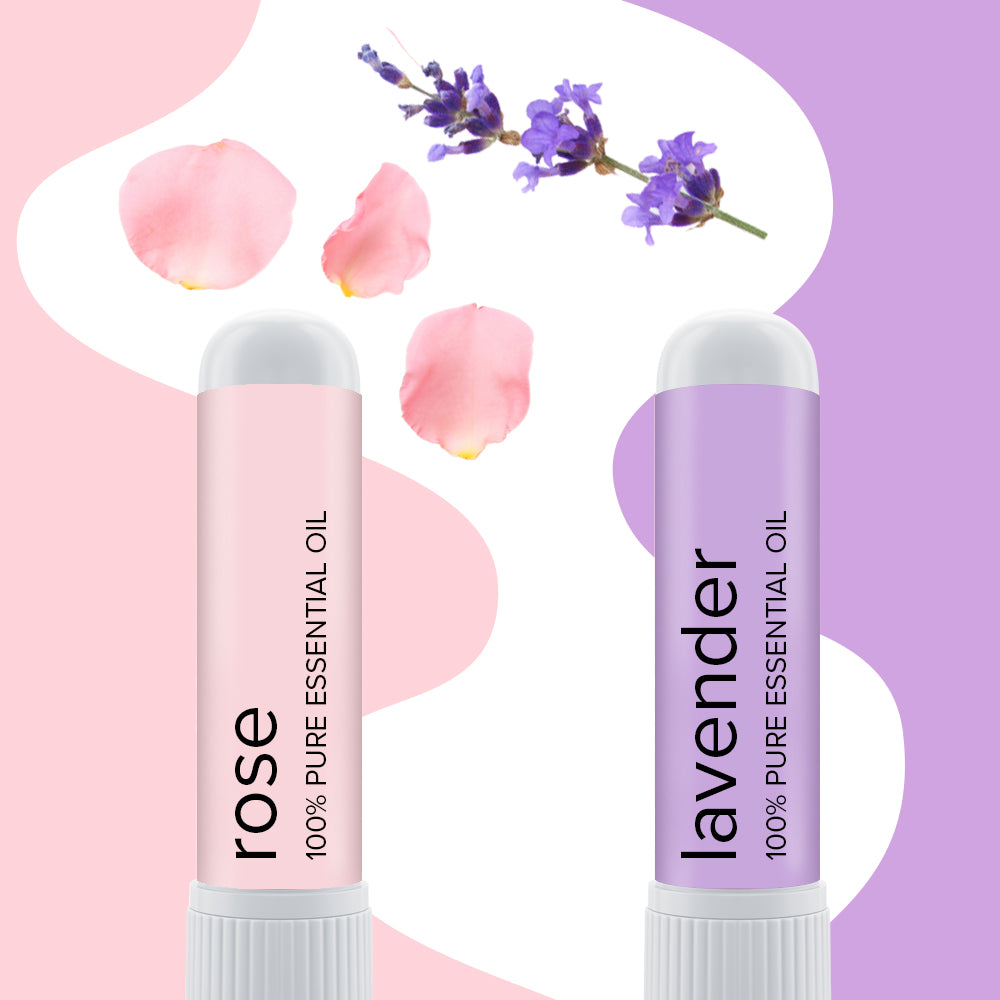
Floral
A subtly sweet, soft scent. The Rose essential oil is the perfect scent to embody this category.
-
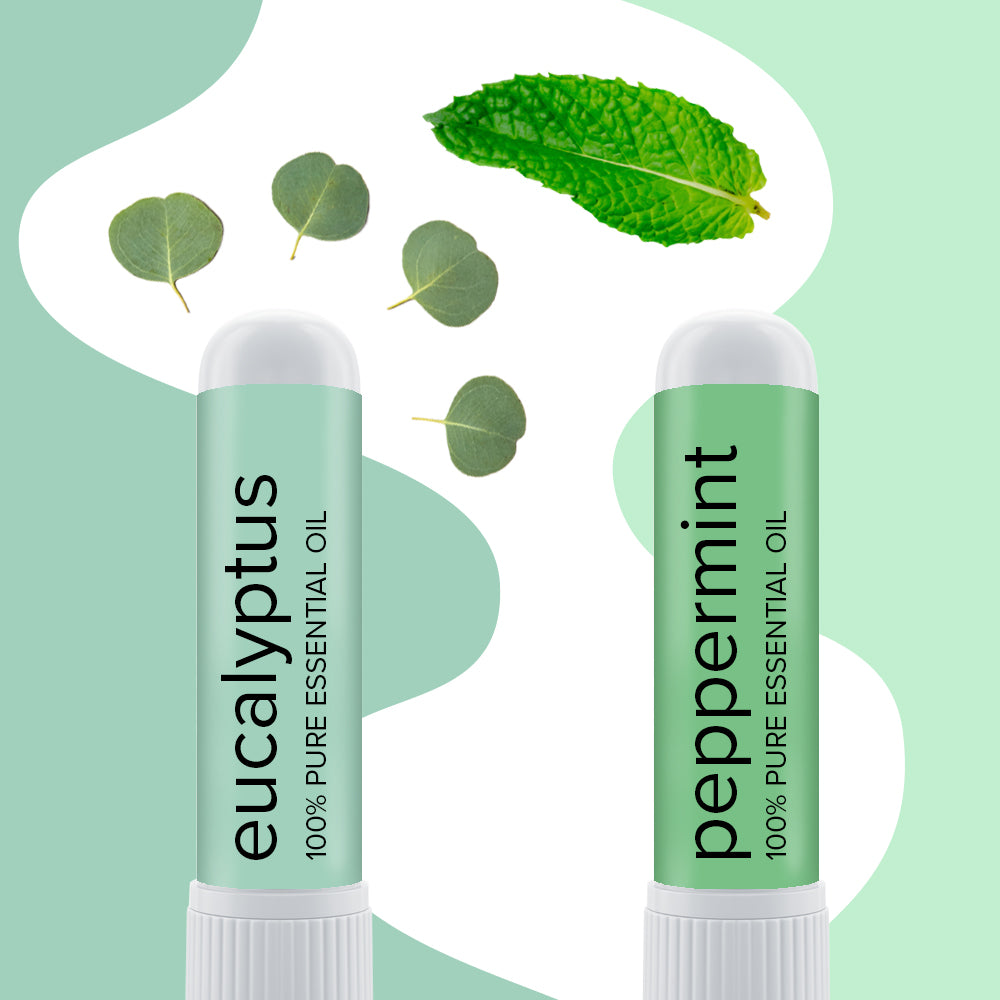
Resinous
A piney, woodsy, leathery, cool scent similar to pine and balsam fir. Eucalyptus oil represents this category of the Odor prism.
-
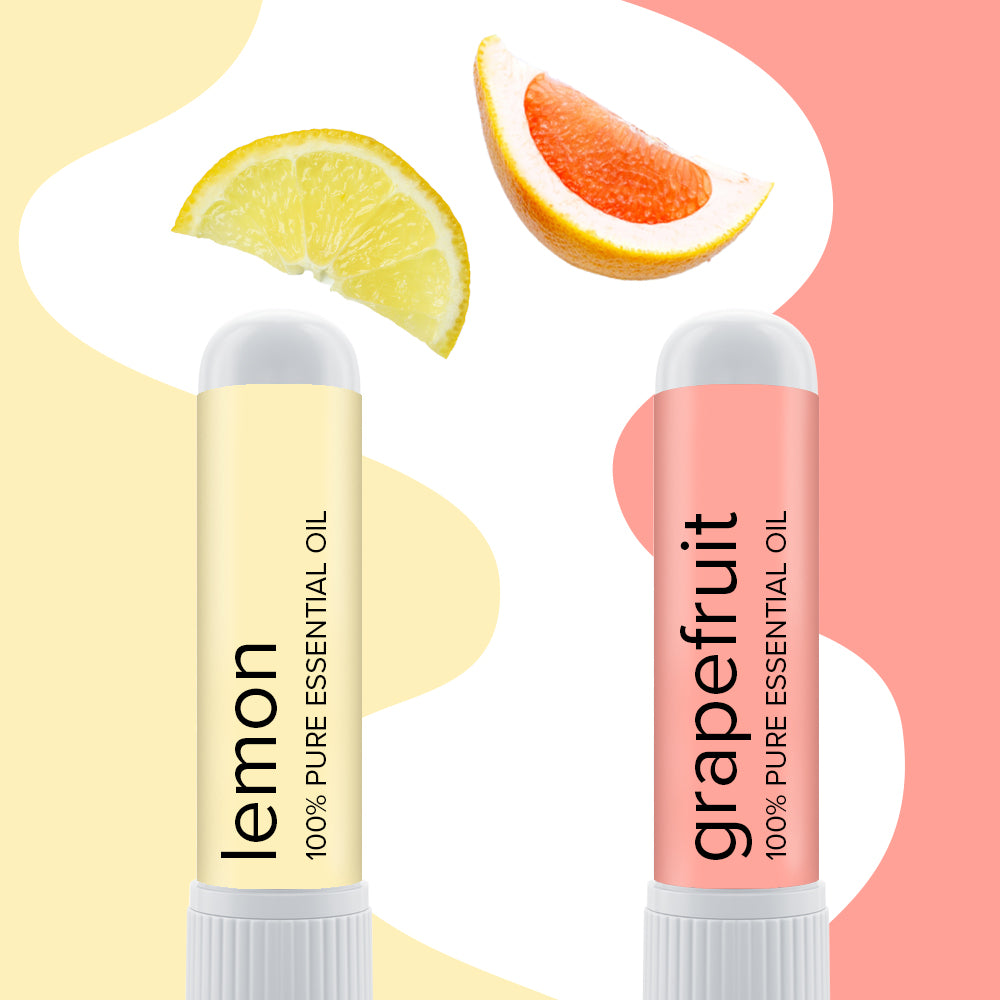
Fruity
A sweet, vibrant, citrus-like scent. The Lemon essential oil is used to represent this category.
-
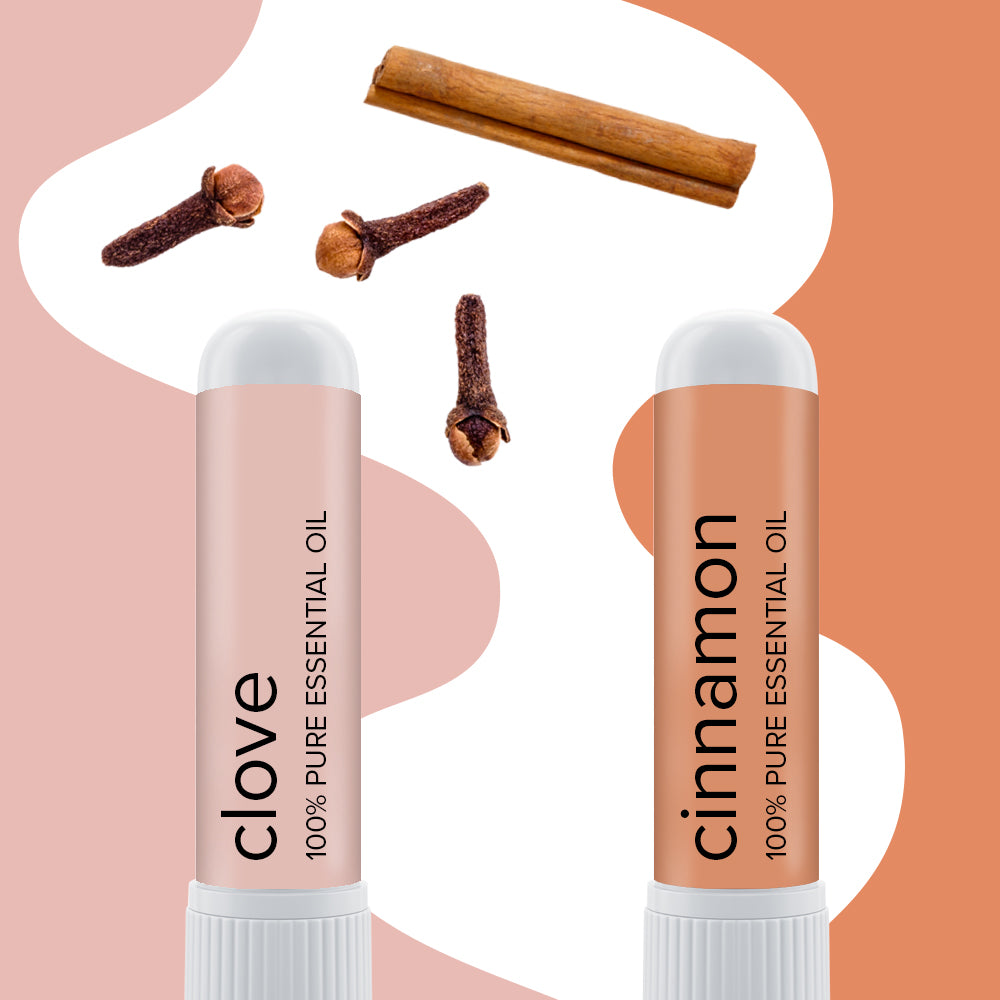
Spicy
A warm, sharp, scent similar to cinnamon. Clove essential oil is classified as being the best scent to represent this category.
Frequently Asked Questions
Can I stick the Inhaler directly in my nose?
We DO NOT recommend sticking the inhaler directly in your nose or making direct skin contact with the tip of the inhaler. The reason is that, in an effort to deliver the strongest possible smell from our inhalers, we do not dilute the Essential Oils that are inside of the inhaler. Essential Oils on their own are extremely potent and can cause skin irritation or discomfort. Please follow the instructions on the packaging to ensure proper use of our product.
How long does each inhaler last?
Our Inhalers are surprisingly long lasting, especially if you are diligent about recapping the product after use. The life span of an inhaler depends on the frequency of use. On average, for an inhaler being used multiple times daily, although the scent rarely ever completely disapears, you will find that the potency begins to diminish after 30 days. During less frequent use, the inhaler will last much longer, up to 3 months or more
Can I refill my MOXĒ Inhaler?
Due to the extreme potency of Pure Essential Oils, we do not recommend attempting to refill your MOXĒ Inhaler.
What if I don't feel the benefits?
It is commonly stated that Essential Oils have been used for a wide range of purposes, including medicinal, therapeutic, and aromatic benefits, for thousands of years. Because of this, the expectation is often that Essential oils will provide instant or dramatic results for everyone.. This is not the case, and it is due to several important factors. Individual Variability: Each person's body and physiology are unique. What works effectively and quickly for one individual may not have the same effect on another. Factors like genetics, age, overall health, and individual sensitivities can all play a role in how a person responds to essential oils.
Specific Needs and Goals: People use essential oils for a wide range of purposes, from relaxation and stress reduction to pain relief and skincare. The effectiveness of an essential oil often depends on whether it addresses the specific needs and goals of the individual. An oil that works well for one purpose may not be as effective for another.
Consistency and Timing: Essential oils sometimes require consistent and regular use over time to produce noticeable results. It's not uncommon for individuals to experience gradual improvements rather than instant or dramatic changes. Patience and consistency are often key to achieving the desired outcome.
Proper Usage: The effectiveness of essential oils also depends on their proper usage. Dilution, application methods, and dosage all play a significant role in how effective an essential oil can be. If not used correctly, an oil may not produce the expected results.
Complex Health Factors: Some health conditions are complex and may require a multifaceted approach to treatment. Essential oils can be a valuable part of a holistic wellness plan, but they may not be the sole solution for more serious or chronic health issues.
Psychological and Emotional Factors: The perception of benefits from essential oils can be influenced by psychological and emotional factors. Aromatherapy is closely tied to our senses and emotions, and a person's mood, expectations, and mindset can affect their perception of an oil's effectiveness.
Safety Considerations: Essential oils should be used safely and in accordance with recommended guidelines. Using too much or applying undiluted oils to the skin can lead to adverse reactions, which may overshadow potential benefits.





